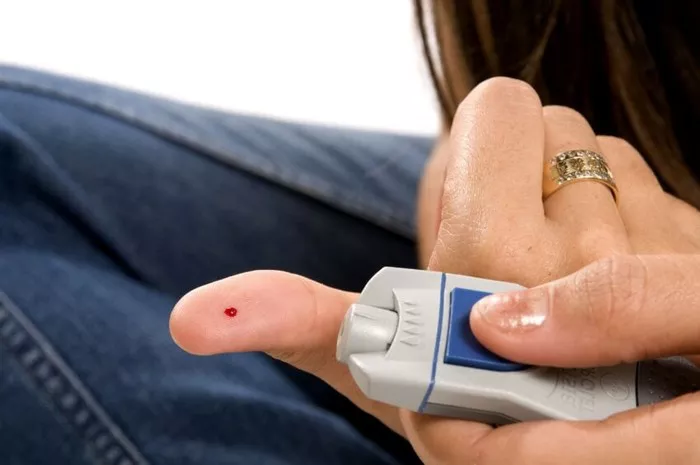Type 1 diabetes, often referred to as insulin-dependent diabetes mellitus or juvenile-onset diabetes, is a chronic autoimmune disorder characterized by the destruction of insulin-producing beta cells in the pancreas. This condition results in an absolute deficiency of insulin production, leading to dysregulation of blood sugar levels and metabolic disturbances. In this comprehensive article, we will explore the multifaceted impact of type 1 diabetes on various aspects of health and well-being, including its physiological effects, clinical manifestations, complications, management strategies, and implications for overall quality of life.
Physiological Effects of Type 1 Diabetes
1. Insulin Deficiency: The hallmark feature of type 1 diabetes is an absolute deficiency of insulin production due to the destruction of pancreatic beta cells by autoimmune processes. Insulin is a hormone that plays a crucial role in regulating blood sugar levels by facilitating the uptake of glucose into cells and promoting its storage as glycogen in the liver and muscles. Without sufficient insulin action, glucose accumulates in the bloodstream, leading to hyperglycemia, metabolic imbalances, and subsequent complications.
2. Hyperglycemia: Elevated blood sugar levels, or hyperglycemia, are a primary consequence of insulin deficiency in individuals with type 1 diabetes. Hyperglycemia can lead to a variety of symptoms, including polyuria (frequent urination), polydipsia (excessive thirst), polyphagia (increased hunger), weight loss, fatigue, and blurred vision. Prolonged hyperglycemia can also increase the risk of acute complications such as diabetic ketoacidosis (DKA) and long-term complications such as cardiovascular disease, neuropathy, nephropathy, and retinopathy.
3. Ketosis and Ketoacidosis: In the absence of sufficient insulin action, cells are unable to uptake and utilize glucose for energy production, leading to increased fat breakdown and the production of ketone bodies. Ketosis, characterized by elevated levels of ketone bodies in the blood, can progress to diabetic ketoacidosis (DKA), a life-threatening complication characterized by hyperglycemia, ketosis, metabolic acidosis, and dehydration. DKA requires prompt medical intervention to prevent severe complications such as coma and death.
Clinical Manifestations of Type 1 Diabetes
1. Classic Symptoms: The clinical presentation of type 1 diabetes is characterized by classic symptoms of hyperglycemia, including polyuria, polydipsia, polyphagia, weight loss, fatigue, and blurred vision. These symptoms typically develop gradually over a period of weeks to months and may vary in severity among affected individuals.
2. Acute Complications: Acute complications of type 1 diabetes, such as diabetic ketoacidosis (DKA) and hyperosmolar hyperglycemic state (HHS), can occur as a result of severe hyperglycemia and metabolic derangements. DKA is more common in individuals with type 1 diabetes and is characterized by hyperglycemia, ketosis, metabolic acidosis, and dehydration. HHS is a less common but potentially life-threatening complication characterized by severe hyperglycemia, hyperosmolality, and dehydration.
3. Chronic Complications: Long-term complications of type 1 diabetes can affect multiple organ systems and include cardiovascular disease, neuropathy, nephropathy, retinopathy, and foot complications. These complications develop gradually over time as a result of chronic hyperglycemia, insulin resistance, inflammation, and oxidative stress. Effective management of blood sugar levels, blood pressure, and cholesterol levels is essential for reducing the risk of chronic complications and improving long-term outcomes.
Management Strategies for Type 1 Diabetes
1. Insulin Therapy: Insulin therapy serves as the cornerstone of treatment for individuals with type 1 diabetes, providing exogenous insulin to replace deficient insulin production and regulate blood sugar levels effectively. Insulin therapy may involve multiple daily injections of rapid-acting or short-acting insulin, basal-bolus insulin regimens, or continuous subcutaneous insulin infusion (insulin pump therapy).
2. Blood Sugar Monitoring: Regular monitoring of blood sugar levels is essential for individuals with type 1 diabetes to assess glycemic control, detect hypo- and hyperglycemia, and adjust insulin doses accordingly. Blood sugar monitoring may be performed using self-monitoring of blood glucose (SMBG) devices or continuous glucose monitoring (CGM) systems, which provide real-time glucose readings and trend data to guide insulin dosing decisions.
3. Nutrition Therapy: A balanced diet that emphasizes whole grains, fruits, vegetables, lean proteins, and healthy fats is essential for managing blood sugar levels and promoting overall health in individuals with type 1 diabetes. Carbohydrate counting, meal timing, and portion control are important components of nutrition therapy, along with regular monitoring of blood sugar levels to assess the impact of dietary choices on glycemic control.
4. Physical Activity: Regular physical activity is beneficial for individuals with type 1 diabetes, helping to improve insulin sensitivity, control weight, and reduce the risk of cardiovascular complications. Exercise should be tailored to the individual’s fitness level and medical condition, with close monitoring of blood sugar levels before, during, and after exercise to prevent hypoglycemia and hyperglycemia.
5. Education and Support: Comprehensive education and ongoing support from healthcare providers, diabetes educators, and support groups are essential for empowering individuals with type 1 diabetes to manage their condition effectively, make informed decisions about their care, and cope with the psychosocial aspects of living with a chronic disease. Education topics may include insulin therapy, blood sugar monitoring, nutrition therapy, physical activity, medication management, and strategies for preventing and managing acute and chronic complications associated with diabetes mellitus.
Implications for Overall Quality of Life
Type 1 diabetes requires lifelong management and monitoring to prevent acute and chronic complications and optimize overall health and well-being. Individuals with type 1 diabetes face numerous challenges in managing their condition, including the need for regular insulin therapy, blood sugar monitoring, dietary restrictions, and lifestyle modifications. However, with proper education, support, and adherence to treatment recommendations, individuals with type 1 diabetes can lead fulfilling lives and achieve optimal health outcomes.
Conclusion
Type 1 diabetes is a complex and multifaceted condition that significantly impacts various aspects of health and well-being. From its physiological effects and clinical manifestations to its management strategies and implications for overall quality of life, type 1 diabetes poses numerous challenges for affected individuals and healthcare providers alike. By understanding the multifaceted nature of type 1 diabetes and adopting a comprehensive approach to its management, individuals with diabetes mellitus can take proactive steps to manage their condition effectively and improve their overall health and well-being. Through ongoing research, education, and support, healthcare providers can continue to advance our understanding of type 1 diabetes and develop innovative strategies to enhance the care and outcomes of individuals living with this chronic disease.



























